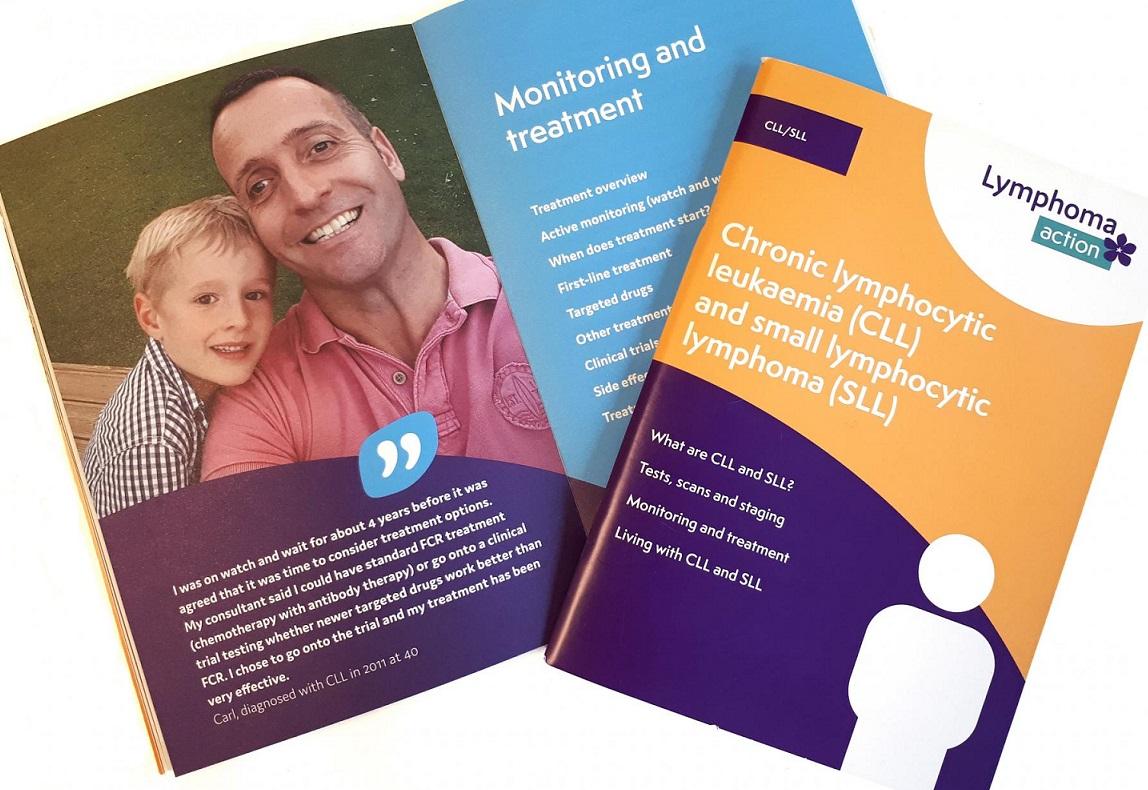New resources for people affected by CLL and SLL
Published on: 20 November 2018Around 10 people every day in the UK are diagnosed with CLL and SLL and face the challenges of living with this chronic cancer - our new resources are here to help.

Chronic lymphocytic leukaemia (CLL) and small lymphocytic lymphoma (SLL) are two forms of the same type of blood cancer. They develop from B lymphocytes (white blood cells that fight infection). CLL has ‘leukaemia’ in its name because it affects the blood. SLL is another form of the same disease and it mainly affects the lymph nodes (glands), which is why it is called a ‘lymphoma’. Both forms of the disease are low-grade (slow-growing) and are often grouped as non-Hodgkin lymphomas.
Anyone can get CLL, but your risk of developing it increases as you get older - it is uncommon in young people and more common over the age of 60. It affects twice as many men as women. There isn’t usually any known cause of CLL. Symptoms often develop gradually and most people have no symptoms when they are diagnosed.
Because CLL and SLL usually grow very slowly people often live with these conditions for many years. They will have treatment from time-to-time if symptoms worsen - but will have long periods without treatment in between - called active monitoring or watch and wait. This can be hard to adjust to and prompts lots of questions and uncertainties.
This is why we have just published a dedicated booklet about CLL and SLL for the first time. It explains CLL and SLL, how they are diagnosed, treated and managed and includes tips on living with these conditions. It has been reviewed by experts and people living with CLL and SLL and includes quotes of them sharing their experiences. There is also space for notes and prompts of questions to ask so it's a practical resource.
Download the booklet here or order a printed copy for free via our online shop.
We have also created a playlist of videos on YouTube, which includes films with Dr George Follows, Consultant Haematologist at Cambridge University Hospital, explaining the conditions and talking about treatment and people personally affected by CLL and SLL sharing their stories.
